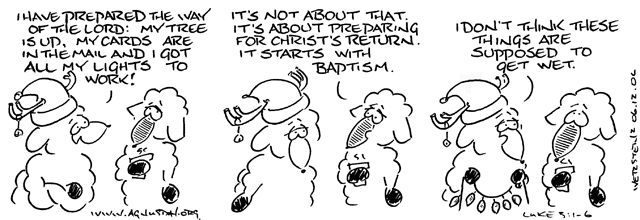







I heard the bells on Christmas day
Their old familiar
carols play
And mild and sweet the words repeat,
Of peace on earth, good
will to men.
I thought how as the day had come,
The belfries of
all Christendom
Had roll'd along th' unbroken song
Of peace on earth,
good will to men.
And in despair I bow'd my head:
"There is no peace on
earth," I said,
"For hate is strong, and mocks the song
Of peace on
earth, good will to men."
Then pealed the bells more loud and deep:
"God is not
dead, nor doth He sleep;
The wrong shall fail, the right prevail,
With
peace on earth, good will to men."
'Til ringing, singing on its way,
The world revolved
from night to day,
A voice, a chime, a chant sublime,
Of peace on earth,
good will to men!
first published in 1863
* One of America's best known poets, Henry Wadsworth Longfellow (1807-1882), contributed to the wealth of carols sung each Christmas season, when he composed the words to "I Heard the Bells on Christmas Day" on December 25th 1864. "Glory to God in the Highest, and on Earth peace, good will toward men" (Luke 2:14). The carol was originally a poem, "Christmas Bells," containing seven stanzas. Two stanzas were omitted, which contained references to the American Civil War, thus giving us the carol in its present form. The poem gave birth to the carol, "I Heard the Bells on Christmas Day," and the remaining five stanzas were slightly rearranged in 1872 by John Baptiste Calkin (1827-1905), who also gave us the memorable tune. When Longfellow penned the words to his poem, America was still months away from Lee's surrender to Grant at Appomattox Court House on April 9th 1865; and, his poem reflected the prior years of the war's despair, while ending with a confident hope of triumphant peace. -Tom Stewart



Malachi 3:1-4
Luke 1:68-79
Philippians 1:3-11
Luke
3:1-6